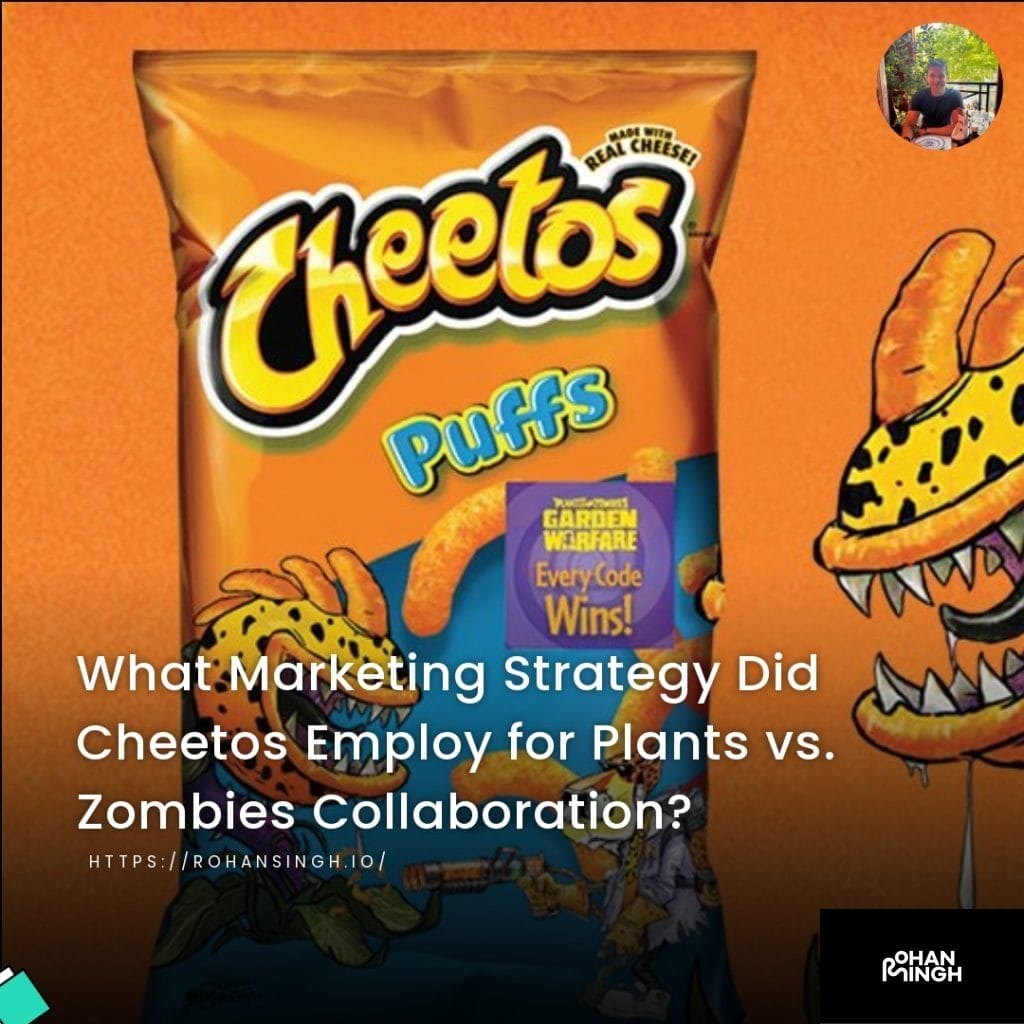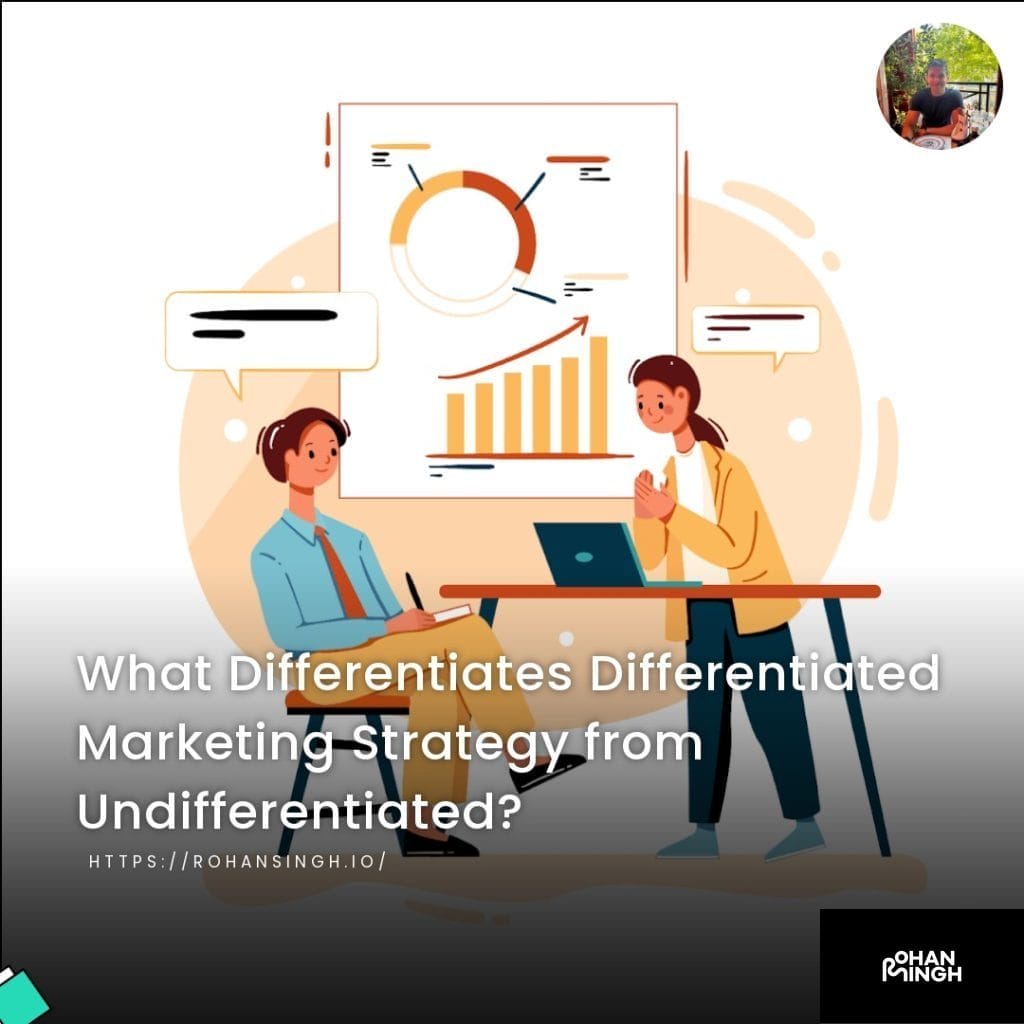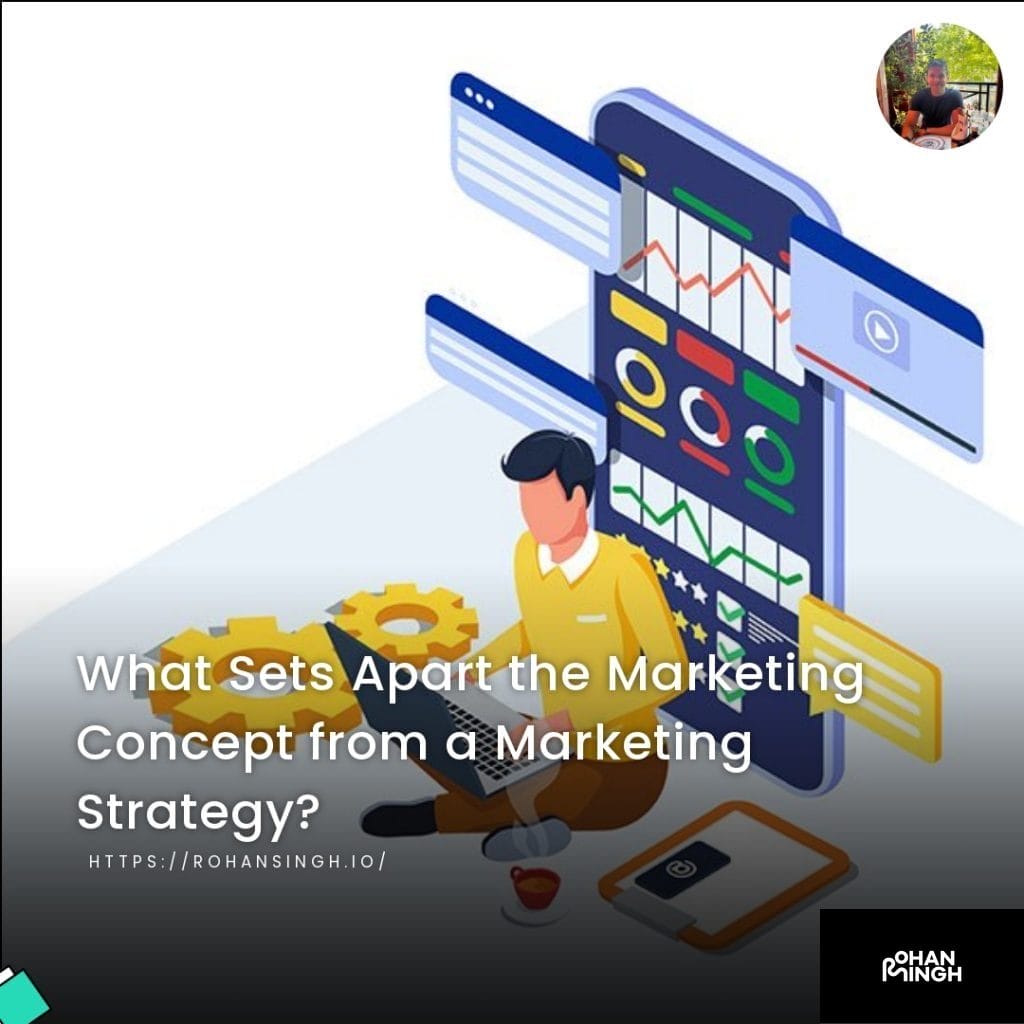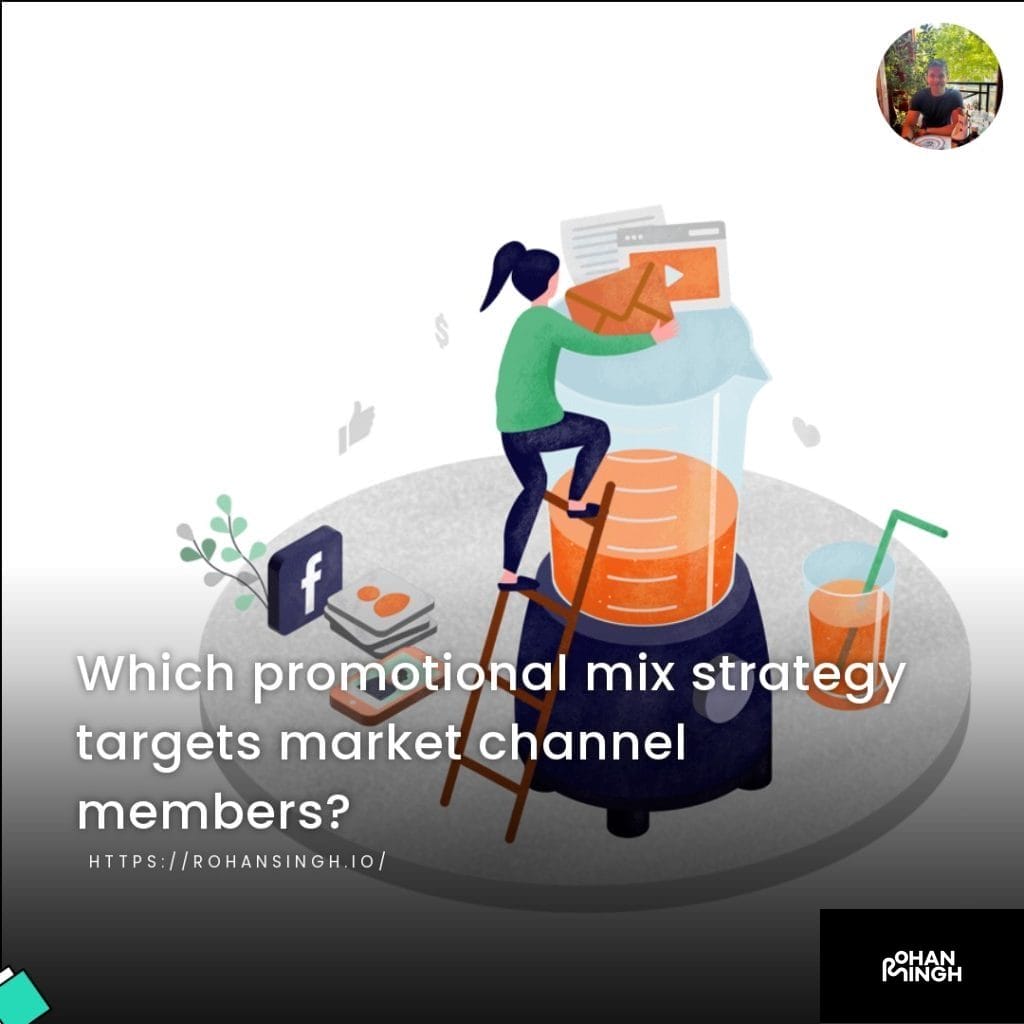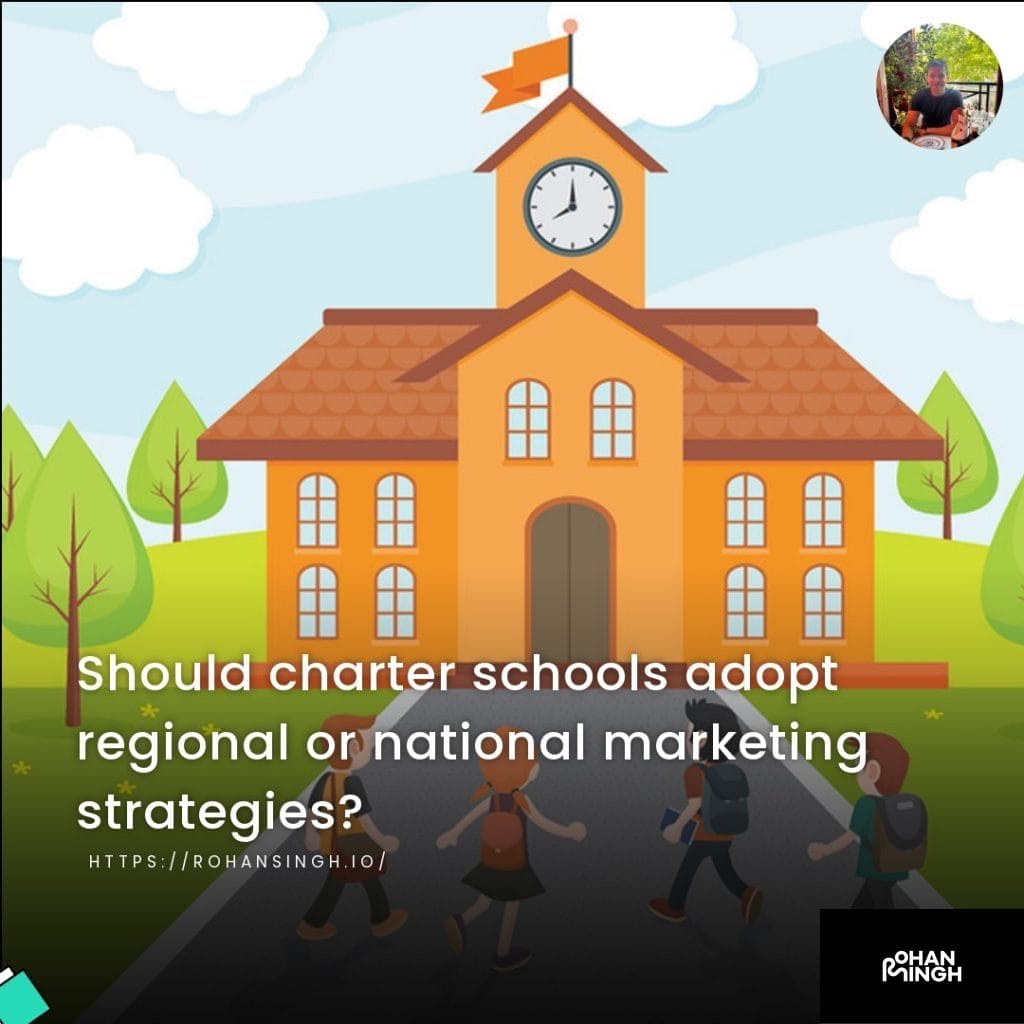Which is more effective: marketing strategy with coupons or email campaigns?
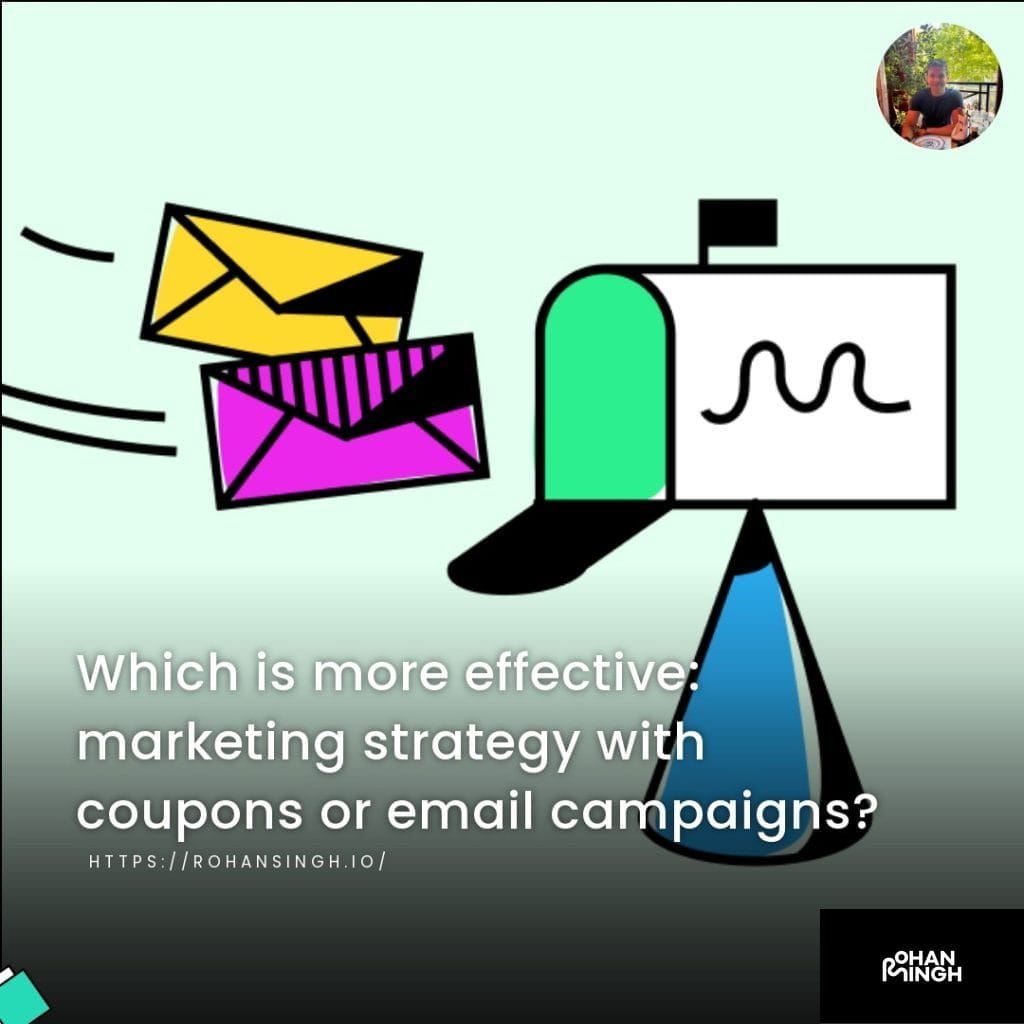
Definition of Coupon Marketing Strategy
Coupon marketing strategy refers to the use of discounts, special offers, and promotional campaigns to attract and retain customers. It is a powerful tool to drive sales, increase brand visibility, and cultivate customer loyalty. Coupons can be distributed both online and offline, allowing businesses to target a wide range of potential customers. By providing a sense of urgency and enticing shoppers with exclusive deals, the coupon marketing strategy aims to encourage shoppers to make a purchase and create a positive customer journey.
Table of Contents
ToggleCoupon marketing strategy can take various forms, such as digital coupons, discount codes, and physical coupons. Digital coupons and discount codes are particularly popular in today’s digital landscape, as they can be easily distributed through email campaigns or displayed on websites and social media platforms. This enables businesses to reach a larger audience and track the success rate of their coupon campaigns. By leveraging customer data, businesses can also personalize coupon offers based on a customer’s purchase history or shopping preferences.
The benefits of coupon marketing strategy are manifold. Coupons not only attract new customers but also help to retain existing ones. They create a sense of excitement and motivate customers to try new products or make repeat purchases. By offering special discounts or rewards through a loyalty program, companies can build a loyal customer base and increase customer lifetime value. Moreover, a coupon marketing strategy can help businesses recover potential customers who have abandoned their shopping carts, offering them an incentive to complete their purchases. Overall, coupon marketing strategy is an effective tool for achieving marketing objectives and driving business growth.
Definition of Email Marketing Strategy
Email marketing strategy is a powerful tool that enables businesses to connect and engage with their audience in a personalized and targeted manner. Unlike traditional marketing methods, such as print ads or TV commercials, email marketing allows businesses to tailor their messages specifically to the recipient’s interests, preferences, and previous interactions with the brand. This personalized approach not only strengthens the relationship between the brand and its customers but also increases the chances of conversion and long-term loyalty.
One effective way to leverage email marketing strategy is through the use of email coupons. By sending exclusive coupons and special offers to newsletter subscribers or loyalty program members, businesses can create a sense of importance and exclusivity, encouraging customers to interact with the brand and make a purchase. These email coupons can be customized based on the customer’s past purchase history, personal preferences, or shopping habits, making the offer even more attractive and relevant. This targeted approach allows businesses to not only promote brand interactions but also build long-term relationships with their customers, enhancing customer loyalty and repeat purchases.
In addition, email marketing strategy provides businesses with the opportunity to track the success of their campaigns through metrics such as open rates, click-through rates, and conversions. This data can be used to refine future email campaigns and further enhance their effectiveness. With the right tools and strategies in place, email marketing can be a highly effective and efficient marketing strategy that drives results and generates a higher ROI compared to traditional methods.
Let's talk about your future project!
Eager to collaborate on your upcoming endeavor? Let's explore and ignite the potential of your next big idea, shaping a promising future together!
Benefits of Coupon Marketing Strategies
Coupon marketing strategies offer a multitude of benefits for businesses looking to boost their marketing efforts. By offering discounts and special deals through the use of coupons, businesses can entice customers to make a purchase, increase brand exposure, and drive customer loyalty. One of the key benefits is the ability to attract new customers and increase brand awareness. By offering coupons to potential customers, businesses can grab their attention and give them a reason to try their products or services. Coupons also create a sense of urgency, motivating customers to take action and make a purchase before the offer expires.
Furthermore, coupon marketing strategies can help to retain existing customers and encourage repeat purchases. By rewarding loyal customers with exclusive discounts, businesses can show their appreciation and incentivize continued support. This can lead to increased customer satisfaction and build long-term relationships. Coupons also provide businesses with valuable customer data. By tracking coupon redemptions and customer behavior, businesses can gain insights into their customer base, identify trends, and tailor future marketing campaigns accordingly. In addition, coupons can be used as a tool to drive traffic both online and to physical stores, ultimately increasing sales and revenue.
Overall, coupon marketing strategies offer a cost-effective and highly targeted approach to marketing. With the ability to track and measure coupon redemptions and effectiveness, businesses have the opportunity to refine their strategies and optimize marketing efforts. Coupons are a powerful tool in the business arsenal, providing a win-win situation for both businesses and customers.

Increase in Sales and Profits
Coupon marketing strategies can play a significant role in increasing sales and profits for businesses. One of the key benefits is the ability to offer targeted discounts. By tailoring coupons to specific products or product categories, businesses can direct customer attention and encourage purchases of high-margin items. For example, a clothing retailer can offer a coupon specifically for their new collection, creating excitement and urgency for customers to make a purchase. This targeted approach not only boosts sales for specific products but also allows businesses to highlight and promote their latest offerings.
In addition to targeted discounts, coupons can also be used as incentives for desired actions, such as upselling. For instance, a beauty brand offering a coupon for a free deluxe-sized product with a minimum purchase amount can encourage customers to spend more to qualify for the free item. This upselling technique not only increases the average order value but also introduces customers to new products, potentially leading to future purchases.
To maximize the chances of sales, retailers should utilize various coupon platforms. SMS marketing can be an effective method for reaching customers directly on their mobile devices, allowing for timely and personalized coupon offers. Additionally, listing coupons on their website can attract customers who are already browsing, increasing the chances of a purchase. By utilizing a combination of platforms, businesses can expand their reach and engage with customers in multiple touchpoints, ultimately driving more sales and profits. So, whether it’s through targeted discounts or incentive-driven coupons, integrating coupon marketing strategies can lead to a significant increase in sales and profits for businesses.
Customer Loyalty and Retention
In the fast-paced world of marketing, fostering customer loyalty and retaining existing customers is critical for long-term success. One effective strategy to achieve this is through the implementation of a customer loyalty program, which can be enhanced by offering exclusive deals and coupons to customers who sign up. By giving customers an added incentive to continue purchasing from your business, you can create a sense of exclusivity and build a loyal customer base.
One key aspect of a successful customer loyalty program is providing truly exclusive coupon codes with exciting deals. These exclusive offers should not be readily available to the general public, creating a sense of value and importance for your customers. By offering unique discounts or access to special events or promotions, you can make your customers feel appreciated and rewarded for their loyalty.
The benefits of loyalty rewards extend beyond just keeping customers engaged and incentivized to continue buying from your business. A well-designed customer loyalty program can also help you gather valuable data about your customers’ preferences, purchase history, and shopping behaviors. This data can be utilized to personalize future marketing campaigns and improve the overall customer experience. Additionally, loyal customers are more likely to refer your business to their friends and family, acting as brand ambassadors and bringing in new potential customers.
In conclusion, implementing a customer loyalty program with exclusive deals and coupons can significantly increase customer loyalty and retention. By making your customers feel valued and offering truly exclusive rewards, you can create a strong bond with your audience and encourage them to continue choosing your business over your competitors.
Enhancing Brand Awareness and Reach
In today’s crowded marketplace, standing out and increasing brand awareness is crucial for any business. One powerful tool that can help achieve this is coupon marketing strategies. By offering special discounts and deals to customers, you can create a buzz around your brand and capture the attention of potential customers.
Coupons act as a form of free advertising, as they often contain your brand name or logo, effectively showcasing your business to a wider audience. When customers use and share your coupons, they are essentially endorsing your brand, amplifying its reach, and creating a positive association with your products or services. This word-of-mouth marketing can be incredibly powerful, helping to generate new leads and attract more customers to your business.
Moreover, coupons can encourage not only new customers but also repeat purchases from existing ones. By offering attractive discounts and deals, you create a sense of urgency and excitement, motivating customers to take advantage of the limited-time offer. This not only helps to increase sales but also strengthens customer loyalty and drives repeat business. Customers who feel valued and rewarded are more likely to become brand advocates, spreading positive word-of-mouth and further expanding your brand’s reach.
To maximize the effectiveness of coupon marketing strategies, it’s important to personalize coupon campaigns based on customer preferences and purchase history. By tailoring discounts and offers to specific customer segments, you can create a more personalized customer journey and increase engagement. Leveraging marketing tools and technologies, like email marketing platforms or customer relationship management (CRM) systems, can help you collect and analyze customer data to understand their preferences and behaviors. This data-driven approach allows you to send targeted and relevant coupon offers directly to customers, improving the effectiveness of your marketing efforts and enhancing the overall customer experience.
In conclusion, coupon marketing strategies not only help enhance brand awareness and reach but also attract new customers and retain existing ones. By offering exclusive discounts and personalized campaigns, businesses can create a strong sense of value and engagement with their customers. So, whether you’re a small start-up or an established brand, incorporating coupon marketing into your overall marketing strategy can be a winning tactic for driving growth and building a loyal customer base.
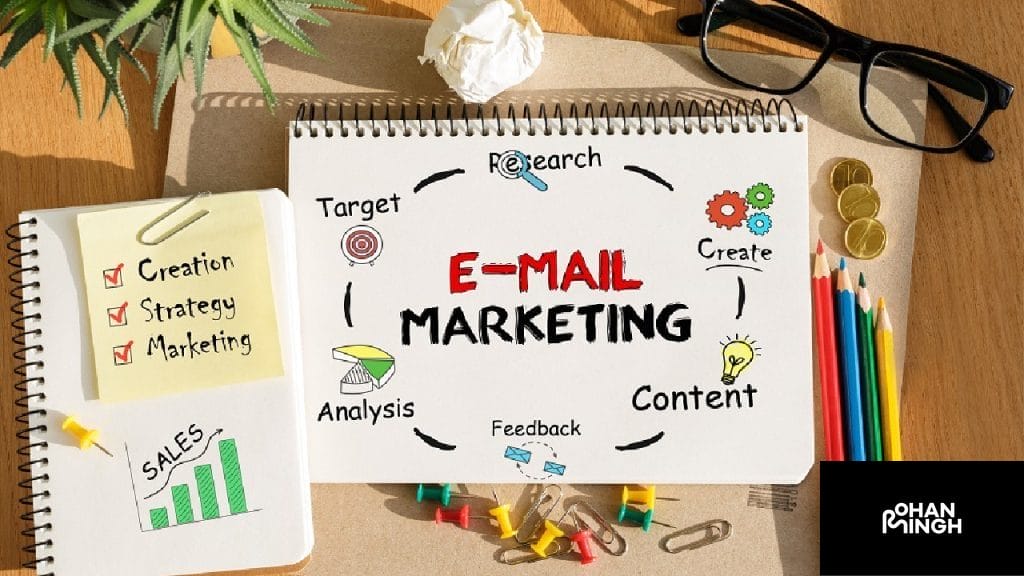
Benefits of Email Marketing Strategies
Email marketing has become a cornerstone of modern marketing strategies and for good reason. This powerful tool offers a host of benefits that can help businesses reach their marketing objectives and drive success. One of the key advantages of email marketing is its ability to deliver personalized and targeted content directly to subscribers’ inboxes. By segmenting your email list based on customer demographics, preferences, or purchase history, you can tailor your messages to specific audience segments, ensuring that your emails are relevant and engaging. This level of personalization not only increases the likelihood of conversions but also enhances the overall customer experience.
Another benefit of email marketing is its cost-effectiveness. Compared to traditional marketing methods, such as print ads or direct mail, email campaigns can be executed at a fraction of the cost. With the help of email marketing platforms and automation tools, businesses can streamline their marketing efforts, saving both time and money. Additionally, unlike physical coupons or discount codes, email coupons require minimal printing or distribution costs, making them a more affordable option for businesses.
Moreover, email marketing provides businesses with valuable data and analytics. Through tracking and monitoring tools, you can gain insights into customer behavior, such as open rates, click-through rates, and conversion rates. This data allows you to measure the success of your email campaigns, identify areas for improvement, and refine your strategies for better results. By continuously analyzing and optimizing your email marketing efforts, you can drive higher engagement, increase ROI, and ultimately, surpass your marketing objectives.
Cost-Effective Solution
Email marketing strategies offer a cost-effective solution for businesses looking to maximize their marketing efforts without breaking the bank. Compared to traditional methods like print ads or direct mail, email campaigns can be executed at a fraction of the cost. By leveraging email marketing platforms and automation tools, businesses can streamline their marketing efforts, saving both time and money.
One key advantage of email marketing is the ability to target specific customer segments. By analyzing customer data, businesses can tailor their email campaigns to reach the right audience with personalized offers and promotions. This targeted approach not only increases the likelihood of conversion but also reduces the chances of wasted marketing efforts and resources.
Furthermore, with the rise of abandoned carts due to additional costs at checkout, email marketing can offer discount coupons to incentivize customers to complete their purchases. By including a time-sensitive offer or a sense of urgency, businesses can entice customers to take action and make a purchase, ultimately increasing checkout rates and revenue.
To make email marketing even more cost-effective, businesses can consider implementing an API-first solution. This approach reduces maintenance and running costs to a minimum while still allowing customization options. With an API-first solution, businesses can automate email flows, integrate with other marketing tools, and streamline their processes, all while keeping costs low.
In conclusion, email marketing strategies provide a cost-effective solution for businesses, allowing them to reach targeted audiences, reduce abandoned carts, and increase revenue. By implementing an API-first solution, businesses can further optimize their email marketing efforts and maximize their return on investment.
Easy Segmentation to Target Different Audiences
Customer segmentation is a crucial aspect of any successful marketing strategy, especially when it comes to coupon marketing. By dividing your customer base into distinct segments, you can easily target different audiences with tailored coupon offers that resonate with their specific needs and preferences. The key is to understand their behaviors, demographics, and purchase history to create targeted campaigns that drive results.
One effective way to segment customers is through behavioral targeting. By analyzing customer behavior, such as their browsing history, purchase frequency, and engagement with your brand, you can identify different segments with unique preferences and interests. For example, you can offer coupon codes to lapsed customers who haven’t purchased in a while, encouraging them to come back and give your brand another try. Similarly, targeting new visitors who sign up for your newsletter with special offers can help convert them into loyal customers.
Another approach to customer segmentation is to consider demographics and psychographics. This involves categorizing customers based on factors like age, gender, location, interests, and lifestyle. For instance, if you run an online clothing store, you could create coupon campaigns specifically targeting women in their 30s who are interested in sustainable fashion. By understanding these different segments, you can create personalized coupon offers that speak directly to their desires and needs, increasing the chances of conversion and customer loyalty.
In conclusion, easy segmentation allows businesses to hone in on the right audience for their coupon marketing strategies. By understanding customer behaviors, demographics, and preferences, you can create targeted campaigns that capture their attention and drive conversions. So, take the time to segment your customer base and get creative with your coupon offers – the rewards will be worth it.

Ability to Track Performance Easily
One of the key advantages of implementing a coupon marketing strategy is the ability to track its performance easily. By utilizing built-in tracking features in your coupon management software, you can gather valuable insights into the success of each promotional campaign without the need to involve developers or rely on complicated analytics tools.
These built-in tracking capabilities allow you to monitor important metrics such as the number of coupons redeemed, coupon usage by customer segments, conversion rates, and overall campaign effectiveness. With these insights, you can easily identify which coupon offers are resonating with your target customers and adjust your strategy accordingly.
To get even more granular data, consider offering unique coupons through different channels. By providing specific codes for different platforms, such as email, social media, or your website, you can differentiate which channel is more effective in reaching your target customers and driving conversions. This allows you to allocate your resources and focus more on the channels that generate the highest return on investment.
In conclusion, the ability to track the performance of your coupon marketing strategy easily is crucial for optimizing your campaigns and maximizing results. By leveraging the built-in tracking features of your coupon management software and offering unique coupons through different channels, you can gather actionable insights and make data-driven decisions to drive customer engagement and increase conversions.
Challenges with Coupon Marketing Strategies
While coupon marketing can be an effective strategy for driving customer acquisition and retention, it also presents its fair share of challenges. One common challenge is ensuring that the discount offered through coupons aligns with your overall marketing objectives and does not cannibalize your profits. It is crucial to strike a balance between attracting new customers and maintaining profitability.
Another challenge is monitoring and tracking the effectiveness of coupon campaigns. With multiple channels for distributing coupons, such as email, social media, and physical coupons, it can be difficult to accurately measure which channels are driving the highest conversions. Without proper tracking mechanisms in place, it becomes challenging to determine the success rate of each coupon campaign.
Additionally, coupon marketing can sometimes create a sense of dependency among customers. If your customers become accustomed to always receiving discounts, they may be less likely to make purchases at full price in the future. This can lead to a decrease in profitability and hinder long-term customer loyalty.
Lastly, coupon campaigns may attract customers who are solely interested in discounts and have no intention of becoming loyal customers. This can result in a high customer churn rate and a lower return on investment for your coupon marketing efforts.
To overcome these challenges, it is important to carefully plan your coupon strategy, set clear objectives, and constantly analyze and optimize your campaigns based on data-driven insights. By focusing on customer segmentation, personalized offers, and fostering genuine customer loyalty, you can leverage coupons as a valuable tool within your overarching marketing strategy.
The redemption Rate is Low for Physical Coupons
One of the major challenges faced in coupon marketing is the low redemption rate for physical coupons. This can be attributed to several factors, including the expenses associated with printing and distributing physical coupons. Not only does this add to the overall cost of the marketing campaign, but it also limits the reach of the coupons to specific locations or outlets.
Furthermore, physical coupons can also be prone to fraudulent behavior, as they can easily be replicated or shared illegally. This not only leads to a loss of revenue for the business but also undermines the effectiveness of the coupon campaign.
To address these challenges and increase the redemption rate for physical coupons, businesses can implement a few strategies. One effective approach is to incorporate unique codes for each coupon. By assigning a specific code to each coupon, businesses can easily track the redemption rate and gain insights into the effectiveness of the campaign.
Another strategy is to optimize the distribution channels for physical coupons. Instead of relying solely on in-store distribution, businesses can explore partnerships with other outlets or even consider mailing coupons directly to targeted customers. This expands the reach of the coupons and increases the likelihood of redemption.
Lastly, data analysis plays a crucial role in targeting the right audience for physical coupons. By analyzing customer data and purchase history, businesses can identify the segments of their customer base that are most likely to respond to coupon offers. This enables businesses to tailor their distribution efforts and ensure that the physical coupons are reaching the right audience, resulting in higher redemption rates.
With these strategies in place, businesses can overcome the challenges of low redemption rates for physical coupons and maximize the effectiveness of their coupon marketing campaigns.

Expenses of Printing Coupons Can Be High
While physical coupons can be an effective marketing strategy, they also come with their fair share of challenges. One of the major drawbacks of printing physical coupons is the high cost involved. Designing, printing, and distributing these coupons can quickly add up, especially for businesses with a large customer base. The expenses include not only the actual printing costs but also the costs associated with distributing the coupons to various outlets or directly to customers. These expenses can significantly impact a business’s bottom line, especially if the redemption rate for the physical coupons is low.
In addition to the financial aspect, physical coupons also have limited reach compared to their digital counterparts. Physical coupons are typically distributed in-store or through traditional methods like direct mail. This limits the potential audience that can be reached, as not all customers may be aware of these coupons or have access to them. Moreover, physical coupons are prone to being lost or forgotten by customers, resulting in missed opportunities for businesses.
To overcome these challenges and broaden their coupon strategy, businesses can consider alternative options such as digital coupons or promo codes. Digital coupons offer several advantages over physical coupons, including lower costs and wider reach. With digital coupons, businesses can easily create and distribute coupons online, reaching a much larger audience. This can be done through various channels such as email campaigns, social media platforms, or even coupon websites. Promo codes, on the other hand, provide customers with a unique code that can be used to avail discounts during online purchases, eliminating the need for physical coupons.
By embracing these alternative coupon options, businesses can not only save on printing and distribution expenses but also reach a larger audience, ultimately leading to a higher redemption rate and increased sales.
Limited Reach for Physical Coupons
While physical coupons can be a tried and true marketing strategy, their limited reach can pose challenges for businesses when it comes to their coupon marketing strategy. Unlike digital coupons, which can be easily distributed online to a wide audience, physical coupons are typically distributed in-store or through traditional methods such as direct mail. This means that the potential audience that can be reached with physical coupons is inherently smaller.
The limited reach of physical coupons directly impacts a business’s ability to attract new customers and retain existing ones. With a narrower audience reach, businesses may struggle to generate the desired level of response and engagement from their coupon campaigns. Moreover, the cost associated with distributing physical coupons can also be a barrier, particularly for small or local businesses with limited budgets.
To make the most of the potential of physical coupons despite their limited reach, businesses can explore alternative methods of distribution. For example, partnering with local businesses or community organizations to distribute coupons can help expand the reach to a more targeted audience. Additionally, businesses can consider incorporating physical coupons as part of their customer journey, such as including them in the product packaging or offering them as incentives for completing certain actions. By thinking creatively and strategically about how to distribute physical coupons, businesses can maximize their impact and effectiveness.
Challenges with Email Marketing Strategies
While email marketing is a powerful strategy for businesses to engage with their customers, there are certainly challenges that can arise. One of the main challenges is the competition for attention in a crowded inbox. With the average person receiving dozens, if not hundreds, of emails each day, it can be difficult for your email to stand out and avoid being lost in the sea of messages.
Another challenge is the increasing difficulty of getting emails delivered to the intended recipient’s inbox. Spam filters have become more sophisticated, and businesses must ensure that their emails are not flagged as spam. Additionally, email clients often categorize promotional emails into separate tabs or folders, making it harder for businesses to achieve visibility and engagement.
Perhaps the biggest challenge with email marketing is the declining open and click-through rates. People are becoming increasingly selective about which emails they open and engage with, leading to lower response rates. This poses a significant hurdle for businesses trying to get their message across and drive action.
To overcome these challenges, businesses can implement several strategies. First, segmenting their email lists based on customer preferences and behavior is crucial. By sending personalized and relevant emails to specific customer segments, businesses can increase the chances of their emails being opened and acted upon. Additionally, optimizing email content for mobile devices is essential, as more people now access their emails on smartphones and tablets.
Furthermore, crafting compelling subject lines and using attention-grabbing visuals can help capture the recipient’s attention. Finally, utilizing automation tools to send targeted and timely emails, such as abandoned cart reminders or post-purchase follow-ups, can significantly improve the effectiveness of email marketing efforts.
Overall, while there are challenges associated with email marketing, businesses can successfully navigate them by implementing smart strategies and utilizing the right tools to optimize their email campaigns.

Final Thoughts
In the battle between marketing strategy coupons and email, it’s essential to consider the strengths and weaknesses of each approach. Coupons offer a tangible and immediate incentive for customers to make a purchase. They create a sense of urgency and can attract new customers while incentivizing loyal ones. With the right coupon marketing strategy, businesses can reach a wider audience and increase their customer base.
On the other hand, email marketing holds its advantages. It allows businesses to nurture relationships with customers through personalized and targeted communication. By segmenting email lists and sending relevant content, businesses can increase email open rates and engagement. Email also provides an opportunity for businesses to build trust, share valuable content, and stay top-of-mind with customers.
Ultimately, the choice between coupons and email marketing depends on the specific objectives and target audience of each business. It’s important to experiment with different strategies and measure their effectiveness. Additionally, combining the power of these two approaches can yield even better results. By integrating coupon offers into email campaigns, businesses can create a seamless and effective customer journey.
With the right tools and creative thinking, businesses can leverage both coupons and email to maximize their marketing efforts and drive sales. So, whether you choose to entice customers with discounts or nurture relationships through personalized emails, the key is to continuously test, optimize, and adapt your strategies to achieve marketing success.
FAQs
What is coupon marketing?
Coupon marketing is a strategy used by businesses to offer discounts, promotions, or special offers to customers as a means of increasing sales and attracting new customers. Coupons can be physical or digital and provide an incentive for customers to make a purchase.
What are the different types of coupons?
There are several different types of coupons that businesses can use in their marketing campaigns. Some common types include percentage-off coupons, dollar-off coupons, free shipping coupons, buy-one-get-one (BOGO) coupons, and limited-time offers. Each type of coupon serves a different purpose and can be tailored to suit the specific needs and goals of a business.
How can coupons be distributed to customers?
Coupons can be distributed through various channels, depending on the target audience and marketing objectives of the business. Some popular distribution channels include physical mailers, email campaigns, social media promotions, website banners, and mobile apps. Businesses can also partner with third-party coupon websites or offer coupons directly to their loyal customers.
How effective is coupon marketing?
Coupon marketing has proven to be a highly effective strategy for driving sales and increasing customer loyalty. According to statistics, over 90% of consumers use coupons when making a purchase, and 72% of consumers say they would be more likely to visit a retail store if they received a coupon. Coupons create a sense of urgency and a perceived value for customers, making them more likely to take action and complete a purchase.
Can coupons be personalized and optimized for better results?
Yes, coupons can be personalized based on customer segments, purchase history, or geographic location to make them more relevant to each customer. Personalization can increase the success rate of coupon campaigns and improve customer engagement. Furthermore, businesses can optimize their coupon marketing strategies by testing different coupon amounts, types, and distribution channels to find the most effective combination for their target audience. A/B testing and data analysis can provide valuable insights to drive further optimizations.
By incorporating coupon marketing into a comprehensive growth strategy, businesses can tap into the power of discounts and incentives to drive sales, increase customer loyalty, and attract new customers.
Why should you use coupon marketing?
Coupon marketing is a powerful strategy that offers numerous benefits for businesses looking to grow their customer base and increase sales. One of the biggest advantages of coupon marketing is its ability to attract new customers. When people see a coupon or special offer, it creates a sense of urgency and a desire to take advantage of the deal. This can be especially effective for businesses looking to target potential customers who may be hesitant to try their products or services. By offering a discount or promotion, businesses can entice these potential customers to make their first purchase and start building a relationship with the brand.
In addition to attracting new customers, coupon marketing also has the potential to increase sales and profits. When customers have a coupon, they are more likely to make a purchase, especially if the discount is enticing. According to statistics, over 90% of consumers use coupons when making a purchase. This means that by offering coupons, businesses can tap into this consumer behavior and encourage more sales. Coupons also create a sense of urgency for customers, motivating them to complete their purchase before the coupon expires. This urgency can significantly boost sales and profits for businesses.
Another key benefit of coupon marketing is its ability to enhance customer loyalty and retention. When businesses offer coupons to their customers, it makes them feel valued and appreciated. In turn, this leads to increased customer loyalty and repeat purchases. According to studies, 72% of consumers say they would be more likely to visit a retail store if they received a coupon. By consistently providing special offers and discounts, businesses can keep their customers engaged and encourage them to continue their relationship with the brand.
Furthermore, coupon marketing can also improve brand awareness and reach. When businesses offer coupons, it creates an opportunity for customers to share the coupon with their friends and family. This word-of-mouth marketing can help expand the brand’s reach and attract new customers who may not have been aware of the business otherwise. Coupons also provide a reason for customers to engage with the brand on social media or sign up for email newsletters, further increasing brand awareness.
Overall, coupon marketing offers a range of benefits for businesses. It can attract new customers, increase sales and profits, enhance customer loyalty and retention, and improve brand awareness and reach. By leveraging the power of coupons, businesses can tap into consumer behavior and create a win-win situation for both the customers and the brand.
How to develop a coupon marketing strategy?
Developing a coupon marketing strategy requires careful planning and consideration of key factors. First and foremost, you need to define your target audience and set clear goals. Understanding who your audience is will help you tailor your coupon offers to their preferences and needs. Are you targeting new customers, loyal customers, or a specific customer segment? Defining this will guide your coupon marketing strategy.
Next, choose the right coupon type for your business. There are various types of coupons, such as percentage discounts, BOGO (buy one, get one) offers, gifts, or free shipping. Consider what type of coupon will resonate most with your target audience and align with your marketing objectives.
After selecting the coupon type, set the appropriate discount levels. Too steep a discount may eat into your profits, while too little may not entice customers. Strike a balance and offer discounts that align with your business goals and the value you provide.
Creating a sense of urgency is crucial in coupon marketing. Set expiration dates for your coupons to encourage customers to take immediate action. This urgency can drive higher redemption rates and prompt customers to make a purchase sooner.
Lastly, tracking the success of your coupon marketing strategy is essential. Use marketing tools to monitor coupon usage, redemptions, and the overall impact on sales and profits. This data will help you refine your strategy going forward and make necessary adjustments to maximize results.
By considering these key factors – target audience, coupon type, discount levels, urgency, and tracking success – you can develop an effective coupon marketing strategy that drives customer engagement and boosts sales for your business.
What Are Digital Coupons?
In the world of e-commerce, digital coupons have become a popular and effective marketing strategy for retailers. These coupons are essentially codes that customers can use to receive discounts or other perks when purchasing on a retailer’s website. The purpose of these coupons is to incentivize customers to choose a particular brand or product over its competitors.
There are different types of digital coupons that retailers can offer. One common type is a percentage discount, where customers receive a certain percentage of the total price of their purchase. Another type is a gift, where customers receive a complimentary item with their purchase. Some retailers also offer free shipping as a coupon incentive.
In exchange for these discounts, retailers often require customers to provide some information, such as their email address or other contact details. This allows the retailer to build their email list and directly market to these customers in the future. It’s a win-win situation – customers get a great deal, and retailers gain valuable customer data for future marketing campaigns.
Overall, digital coupons are a powerful tool for retailers to attract and retain customers. By offering incentives and creating a sense of urgency, retailers can drive sales and build customer loyalty. It’s a marketing strategy that benefits both the customer and the retailer, creating a win-win scenario in the digital marketplace.
Where Can You Get Coupons?
When it comes to attracting customers with coupons, there are various sources that businesses can tap into. One of the most traditional methods is through physical coupons, which can be distributed through mailings or handed out with purchases. These physical coupons can be a great way to catch the attention of potential customers and entice them to make a purchase.
In addition to physical coupons, businesses can also take advantage of digital coupons, which have become increasingly popular in today’s digital age. These coupons can be easily distributed through email campaigns or showcased on social media platforms. With the rise of online shopping, digital coupons offer businesses a convenient way to attract customers and drive sales.
But it doesn’t stop there. Another effective way to distribute coupons is through the use of coupon codes. These unique codes can be shared on social media or through email campaigns, allowing businesses to track the success of their coupon strategy and measure the impact on customer acquisition. By offering coupon codes, businesses can create a sense of urgency and exclusivity, making customers feel like they are getting a special deal.
In summary, whether it’s through physical coupons, digital coupons, or coupon codes, businesses have a variety of options to choose from when it comes to attracting customers with coupons. The key is to find the right mix of strategies that align with your target audience and marketing objectives.
What is coupon marketing?
Coupon marketing is a powerful strategy used by businesses to attract customers and boost sales by offering discounts and special deals. The concept is simple yet effective – gives customers an incentive to make a purchase, and they are more likely to do so. Coupons can take various forms, from traditional paper coupons to digital codes and even mobile apps.
Paper coupons are the traditional method of coupon marketing, where customers can physically cut out coupons from print media or receive them through the mail. While they may seem old-fashioned, paper coupons still hold value, especially for customers who enjoy the tactile experience or seek out physical discounts.
Digital codes, on the other hand, have become increasingly popular in today’s digital age. These codes can be easily shared on social media platforms or distributed through email campaigns, allowing businesses to reach a wider audience. Digital codes also offer the advantage of being easily trackable, allowing companies to measure the success of their coupon strategy and make data-driven decisions.
To make their coupon marketing strategy even more effective, businesses can personalize coupons to appeal to specific customer segments. By analyzing customer data and purchase history, companies can create targeted offers that resonate with individual shoppers. This personalization adds a layer of relevance and exclusivity to the coupons, making them more enticing and likely to be redeemed.
Overall, coupon marketing is a versatile and highly effective strategy that businesses can leverage to attract new customers, incentivize repeat purchases, and ultimately boost sales. Whether through paper coupons, digital codes, or personalized offers, coupons provide a win-win situation for both businesses and customers, creating a sense of excitement and value in every transaction.
What is a digital coupon?
A digital coupon is a promotional tool that offers a discount on a purchase and is typically distributed online. It comes in the form of a code that can be redeemed either online or in-store. Digital coupons provide a convenient way for customers to save money, as they can quickly apply the discount during checkout.
One of the key benefits of digital coupons is that they are cost-effective for businesses. Unlike traditional paper coupons, there are no printing or distribution costs involved. Plus, digital coupons can be easily shared through various marketing channels, such as email campaigns or social media platforms, reaching a wider audience with minimal effort.
Not only are digital coupons cost-effective, but they are also engaging for customers. The sense of urgency created by time-limited offers or limited quantities makes customers more likely to redeem the coupon. This can help drive immediate sales and create a sense of excitement and anticipation among shoppers.
Lastly, digital coupons make tracking performance and measuring the success of coupon campaigns easy. By using analytics tools, businesses can monitor redemption rates and gather valuable data about customer behavior. This information can then be used to optimize future coupon campaigns and personalize offers to specific customer segments.
In summary, digital coupons provide a discount on a purchase and can be easily redeemed through a code. They are cost-effective, engaging, and offer businesses the ability to track performance and gather valuable data. Incorporating digital coupons into a marketing strategy can help drive sales and enhance the overall customer experience.
Why you need to use email coupons and promo codes?
Email coupons and promo codes are essential components of successful email marketing campaigns. Not only do they provide customers with valuable discounts and incentives, but they also offer a range of benefits for businesses.
First and foremost, email coupons have been proven to significantly increase engagement rates. According to recent studies, emails that include coupons see a 14% increase in open rates and a 34% boost in unique clicks compared to emails without any promotional offers. This means that incorporating coupons into your email marketing can attract more attention from your audience and drive higher levels of traffic to your website or online store.
Furthermore, email coupons have a direct impact on sales. Research has shown that emails with coupons experience a 27% increase in transaction rates, meaning that customers are more likely to make a purchase when offered a discount. Additionally, email coupons can lead to a 48% rise in revenue per email sent, demonstrating their ability to generate higher profits for businesses.
To maximize the effectiveness of email coupons, there are a few tips to keep in mind. First, ensure that the coupon code is visible and easy to use. This will prevent any frustration or confusion for customers during the checkout process. Additionally, consider personalizing the email coupons based on the customer’s past purchase history or preferences. This can create a more tailored and relevant experience, increasing the likelihood of a sale. Lastly, create a sense of urgency by setting an expiration date for the coupon. This motivates customers to take action sooner rather than later, driving immediate sales.
In conclusion, incorporating email coupons and promo codes into your email marketing campaigns is a powerful strategy to increase engagement, drive sales, and boost revenue. By following these tips and leveraging the benefits of email coupons, businesses can effectively engage their audience and achieve their marketing objectives.
What Marketing Strategy Did Cheetos Employ for Plants vs. Zombies Collaboration?
Rohan Singh | May 1, 2024 | Acquisition What Marketing Strategy Did Cheetos Employ for Plants vs. Zombies Collaboration? Background on Cheetos Cheetos, a popular brand of cheese-flavored snacks, has made a name for itself with its bold and playful marketing strategies. Known for its irreverent and creative campaigns, Cheetos has consistently found unique ways […]
What Marketing Strategy Did Cheetos Employ for Plants vs. Zombies Collaboration?
Rohan Singh | May 1, 2024 | Acquisition What Marketing Strategy Did Cheetos Employ for Plants vs. Zombies Collaboration? Background on Cheetos Cheetos, a popular brand of cheese-flavored snacks, has made a name for itself with its bold and playful marketing strategies. Known for its irreverent and creative campaigns, Cheetos has consistently found unique ways […]
What Differentiates Differentiated Marketing Strategy from Undifferentiated?
Rohan Singh | April 30, 2024 | Acquisition What Differentiates Differentiated Marketing Strategy from Undifferentiated? Definition of Differentiated Marketing Strategy A differentiated marketing strategy is a targeted approach that focuses on creating unique products or services to meet the specific needs and preferences of different customer segments. It recognizes that customers have diverse tastes, preferences, […]
What Sets Apart the Marketing Concept from a Marketing Strategy?
Rohan Singh | April 29, 2024 | Acquisition What Sets Apart the Marketing Concept from a Marketing Strategy? Definition of Marketing Concept The marketing concept is a philosophy that places the customer at the center of all marketing activities. It focuses on understanding the needs and wants of the target market and delivering value to […]
Which promotional mix strategy targets market channel members?
Rohan Singh | April 28, 2024 | Acquisition Which promotional mix strategy targets market channel members? When it comes to promoting a product or service, companies utilize various strategies to reach their target audiences. One key strategy that directs marketing efforts toward market channel members is known as trade promotion. Trade promotion is a type […]
Should charter schools adopt regional or national marketing strategies?
Rohan Singh | April 27, 2024 | Acquisition Should charter schools adopt regional or national marketing strategies? Purpose When it comes to marketing strategy in the field of charter schools, two broad approaches can be taken: regional and national. Each approach has its purpose and benefits depending on the goals and aspirations of the charter […]
Similar articles about Acquisition Strategy:
Ready to Plan Your Dream Trip with ChatGPT Vacation Planner?, Want to Experience the Magic of Third-Party ChatGPT Plugins?
How can Efficient Project Management Boost Your Success?, Looking to Boost Your YouTube Views? Use ChatGPT for Top-Notch Video Optimization!, Are You Leveraging SEO Audits to Win More Clients?, Ever Thought of Starting an AI Career? Discover How Today!, Can SEO Propel Your Store to 1 Million Monthly Visitors?, How Can Google Bard Supercharge Your SEO Content Strategy?
Which is the Best AI Chatbot? A Head-to-Head Comparison of ChatGPT, Claude 2, Bing Chat, and Google Bard, Eager to Multiply Local Business Reviews from Travelers?, Want a Game-Changer in SEO? Have You Tried AI and Chrome Extensions Yet?, Can AI-Powered Growth Spark Your Business Acceleration and Digital Transformation?, Ready to Achieve SEO Mastery and Stand Out in the Digital World?
Ready to Dominate the Future? How Can You Kickstart Your AI Data Science Career Today?, Want to Dominate Google SERP? Learn How to Supercharge Your Content Strategy!, Have You Explored the ChatGPT Android App Yet?, Ready to Supercharge Your Business? Harness the Power of Always-On PPC Strategy Now!
Are You Choosing the Right Digital Agency for Your Business? Discover the 5 Key Considerations!, How Can AI Marketing Tools Transform Your Social Media Career?, How Can You Dominate YouTube Rankings with SEO in 2023?
Struggling with Competitive Organic Keywords? Try Our Advanced Keyword Domination Strategy!, Want to Dominate Google Page Ranking? Discover the Secrets Here!, Can You Transform Unexpected Publicity into Opportunity with PPC?
Want to Create High-Converting Emails Fast? Have You Tried AI Copywriting & ChatGPT?, How Can You Thrive in the AI Era? A Guide to AI Survival, Want to Dominate Google’s First Page? Discover the Essential SEO Ranking Factors, How to Implement Generative AI Tools Safely and Ethically? Navigating the Ethical AI Implementation Quandary
Ready to Scale Your Career? How to Learn Growth Marketing in 6 Transformative Steps, Ready to Launch Your Career? How to Land Your First Digital Marketing Job: A Must-Read Guide for Freshers!, Want to Safeguard Your Paid Search Campaigns? Discover Proven Strategies Here!
Looking to Boost Your WordPress SEO with AI? Here are 12 Tools You Can’t Miss!, Want to Boost Your Google Rankings? Master SEO Strategies to Hit #1 Now!, How Can AI SEO Revolutionize Your Online Strategy?, Are Your High Schoolers Ready for the AI Wave?, How Can You Achieve Perfect SEO Harmonization?, Ready to Ignite Niche Buzz? Learn How to Fuel Demand!, Ready to Supercharge Your Digital Marketing Agency’s Growth?,
Can ChatGPT Elevate Your PPC Strategy?
Ready to Dominate Digital Marketing in 2024 Using AI?, Want the Secret to #1 Rankings with SEO Web Design?, Ready to Break Language Barriers with Google Bard?, Ready to Boost Your Cleaning Business via Google Ads with Mcelligot?
How Can You Master Google Analytics 4 Quickly?, How Can SEO Mastery Elevate Your Brand’s Future?, Want to Boost Your SEO in 2023? How Can Guest Posting Help?, Want to Top Google’s Charts? How Can the ChatGPT SEO Hack Propel You?
Want the Best Visibility for Your Videos? How Does Video SEO Upload Make a Difference?, How Can You Improve Your Video’s Rank with YouTube SEO Tips?, How Can SEO be Your Ultimate Tool for Generating Leads Forever?, How Can SEO Boost Elevate Your Ranking and Conversion Rates?
How Can Digital Marketing Supercharge College Enrollment?, How Can SEO Mastery Ensure Endless Lead Generation?, How Can You Craft an AI-Ready Resume for Modern Recruitment?, How Does Venmo’s Marketing Strategy Drive Success?
How Can an Effective CEO Branding Strategy Elevate Your Business?, What Makes Doritos’ Marketing Strategy a Winning Formula?, How Does IKEA’s Marketing Strategy Revolutionize Home Furnishing?
What Sets Apart Samsung’s Advertising Strategy for Success?, How Does Nintendo’s Marketing Strategy Revolutionize Gaming?, How Does Bank of America’s Marketing Strategy Drive Success?
How Does Nestle’s Marketing Strategy Drive Business Growth?, What differentiates Nike and Adidas marketing strategies?, What differentiates a Go-to-Market Strategy from a Marketing Strategy?, What are the marketing strategies of Amazon and Flipkart?
What distinguishes a pull strategy from a push strategy in marketing?, What are the marketing strategies of Pepsi and Coke?
What distinguishes a Chief Strategy Officer from a Chief Marketing Officer?, What sets apart a marketing strategy from a sales strategy?
What are the marketing strategies of Colgate and Pepsodent?, What differentiates marketing research from marketing strategy?, Examples of marketing strategy and tactics, What is an effective marketing strategy for car dealers?
How does Nike’s marketing strategy drive its success?, How does Nike execute its international marketing strategy?, What’s the secret behind an effective hot sauce marketing strategy?, What drives Amazon’s powerful marketing strategy?
How can an innovative marketing strategy drive business growth?, What is Nissan’s effective advertising strategy?, What are the differences between one-to-many and one-to-one marketing strategies?, What sets apart big business and small business marketing strategies?
What differentiates Amazon’s marketing from its business strategy?, How can small businesses choose between global marketing standardization and adaptation?, Which platform offers the best marketing strategy: YouTube, Facebook, or Instagram?, How does Nike’s marketing strategy compare to Reebok’s?
Which marketing strategy is better: Deluxe or Premium?, What marketing strategy suits tangible vs intangible dominant products?, Guerilla marketing vs bootstrap marketing: Which is more effective?, Which is better: Niche marketing or concentrated marketing?
What are the differences between undifferentiated, differentiated, and concentrated marketing strategies?, What was the marketing strategy for Mayweather vs. McGregor?, What distinguishes the marketing strategies of Suzuki and Honda motorcycles?, Which is more effective: Regional or national marketing strategy?
What differentiates global marketing strategy from a multidomestic strategy?, Which marketing strategy is ideal for tangible vs. intangible dominant products?, How does Pepsi’s marketing strategy compare to Coca-Cola’s?, When is it appropriate to use differentiated marketing versus a mass market strategy?, What sets apart the marketing strategy for services from products?, How do HP and Dell differ in their marketing strategies?
How do PlayStation and Nintendo differ in their marketing strategies?, How do Timex and Rolex differ in their marketing strategies?, What is the purpose and focus of a social marketing strategy?, How does Facebook’s marketing strategy compare to Google’s?, When to choose concentrated marketing strategy over differentiated marketing?, How does Lowe’s marketing strategy compare to Home Depot’s?
Is it better to use multiple brand names or one brand name in your marketing strategy?, Which is more effective: marketing strategy with coupons or email campaigns?, What sets Verizon, T-Mobile, and AT&T apart in their commercial marketing strategies?,What Sets Apart Global Marketing Strategy from US Marketing Strategy?
Multinational vs. Transnational Marketing Strategy: What’s the Difference?, What’s the Distinction: Advertising vs. Marketing Strategy? Uncover the Differences., What Are the Advantages of Centralized and Decentralized Marketing Strategies?
What’s the Difference Between Guerrilla and Bootstrap Marketing Strategies?, How Do Pepsi and McDonald’s Differ in Marketing Strategies?, What Differentiates a Marketing Strategy from Tactics Deck?, What Sets Apart Suzuki and Honda Marketing Strategies?, How Does a Vision Statement Differ from a Marketing Strategy?,What’s the Difference Between Concentrated and Undifferentiated Marketing Strategies?
How Do Microsoft and Apple Differ in Marketing Strategies?,What Sets Apart the Marketing Strategies of Xbox One and PS4?,What Sets Apart Li Ning and Adidas Marketing Strategies?, How Do Pepsi and Coke Differ in Marketing Strategies?, How Do Distribution Strategy and Marketing Strategy Intersect?, What Sets Apart Global and Domestic Marketing Strategies?, What Makes an Effective Marketing Strategy for Consulting Services vs Operations?, What’s the Difference Between a Digital Marketing Plan and Digital Strategy?
How Does Marketing Strategy Impact Channel Selection? ,How Do Boeing and Airbus Differ in Their Marketing Strategies?, What is the Difference Between Corporate and Marketing Strategy?,What can we learn from Walmart’s global vs marketing strategy case study?, What distinguishes General Motors’ marketing strategy from Ford’s?, What are the differences in marketing strategies between McDonald’s and Burger King?, What is the difference between marketing and commercial strategy?, What distinguishes Home Depot and Lowe’s marketing strategies?,
How does marketing strategy differ for small businesses vs. big businesses?,What sets IKEA’s marketing strategy apart from competitors?, What are the marketing strategies of Nestle and Cadbury? ,What Sets Apart Puma and Adidas Marketing Strategies?, What’s the Distinction Between Operational and Marketing Strategy?,
What Differentiates Marketing Strategy Text and Cases International Edition from US?, What Differentiates Marketing and Operational Strategies for Nonprofit Startups?,
What are the differences between Intel and AMD’s marketing strategies?, What Sets Apart Nokia and Samsung Marketing Strategies?, What’s the Difference Between Marketing Plan and Strategy for Therapists?, What Sets Apart Wendy’s, McDonald’s, and Burger King Marketing Strategies?
What’s the Difference Between Single Country Marketing and Global Marketing Strategy?, What Sets Apart Marketing Strategy from Sales Strategy?, What Differentiates Pizza Hut and Domino’s Marketing Strategies?, What’s the Distinction Between Channel Strategy and Marketing Strategy?, What Are the Essential Steps in Developing a Marketing Strategy?
What Makes Coca-Cola’s Marketing Strategy Successful?, What Sets Apart Mattel’s Marketing Strategy for Success?, What Is the Key to Goodwill Marketing Strategy?, What’s the Ideal Marketing Strategy for Senior Living Communities?, How Do You Formulate an Effective Marketing Strategy?, What Are the Four Steps to Designing a Customer-Driven Marketing Strategy?, What Makes UFC’s Marketing Strategy a Knockout Success?, How to Develop an Effective Marketing Strategy for a Consulting Firm?
What’s the Winning Marketing Strategy for Car Dealerships?, What Are the Four Steps to Designing a Customer-Driven Marketing Strategy?, What Differentiates Marketing Strategy from Corporate Strategy?, How Do Marketing Planning and Strategy Differ in Demographics vs Psychographics?, What distinguishes a Content Strategy from a Content Marketing Strategy?, Blue Ocean Strategy vs. 22 Immutable Laws of Marketing: Which Approach Drives Business Success?, Are digital marketing strategies superior to traditional ones?, What are the differences between inbound and outbound marketing strategies?, What Sets Apart Digital Marketing Strategy from Social Media Strategy?
What Sets Apart Marketing Strategy and Marketing Campaign?, How Did Uber Implement Their Growth Strategy?, What’s the difference between a digital marketing strategy and a social media strategist?, What Sets Apart Two-Sided and One-Sided Fast Food Marketing Strategies?, What’s the Distinction Between Marketing Product Manager and Marketing Strategy Manager?,
How Did Airbnb Execute Their Growth Strategy?, What differentiates a marketing strategy from a tactic?, What makes an effective museum marketing strategy?, What are the differences between traditional and digital marketing strategies?, How Do Advertising Objectives Align with Marketing Strategy Planning?, What Sets Apart Marketing and Operational Strategies for Startups?, What Differentiates Web Strategy from Digital Marketing Strategy?, What’s the Difference Between Project Management and Marketing Strategy?, How do Absolut and Smirnoff vodka differ in their marketing strategies?, How does marketing strategy differ for services versus operations?
Which Dominates: Amazon vs. eBay Marketing Strategy? Unveiling the Differences., How does a global marketing strategy balance adaptation and standardization decisions?, What Differentiates a Marketing Plan, Strategy, and Campaign?, What Are Canon and Nikon’s Marketing Strategies?, How does a content strategy differ from a marketing plan?, What sets marketing apart from strategy?,What sets apart a total web strategy from a web marketing strategy?, How do business strategy and marketing align for success?
What Are the Steps to Develop a Customer-Driven Marketing Strategy?, How Do B2C and B2B Marketing Strategies Differ?, What Sets Apart Marketing Strategy from Marketing Mix?, What’s the Difference Between Business and Marketing Strategy?, How does a Content Strategy differ from a Marketing Strategy?,
How Does the Good vs Evil Dynamic Impact Sex Sells Marketing Strategy?, How Does a Marketing Plan Differ from a Competitive Strategy?, Which marketing strategy works best for videos: Facebook or YouTube?, How Did Tata Communications Implement an Effective Emerging Markets Growth Strategy?,
How do Samsung and Sony differ in their 3D TV marketing strategies?, What Differentiates International and Domestic Marketing Strategies?, What’s the Distinction Between Commercial Strategy and Marketing Strategy?, How do Apple and Samsung’s marketing strategies compare?, What is the difference between marketing methods and marketing strategy?, What was the marketing strategy behind Sarabhai vs Sarabhai’s success?
Which Marketing Strategy Dominates: Tangible or Intangible?, What Sets Apart Blue Ocean and Red Ocean Marketing Strategies?, What are the differences in Walmart’s marketing strategy between the US and Mexico?, How do marketing plan, strategy, and management work together for business success?
Can you provide a marketing strategy vs marketing plan example?, What Differentiates Brand Building from Product Marketing Strategy?, What is the importance of an advertising strategy statement?, What Sets Apart Cisco’s B2B Marketing Strategy from Dell?, What are the differences in Intel and AMD’s marketing strategies?, What’s the Difference Between Marketing Plan, Strategy, and Management?
What’s the Difference Between Digital Marketing and Digital Strategy?, What’s the Difference Between Offensive and Defensive Marketing Strategies?, What’s the Marketing Strategy for Tangible vs. Intangible Dominant Products?, Which is Better for Your Business: Marketing Strategy vs. ClickBank vs. Quant?, Should I focus on marketing regionally or nationally? Expert insights revealed., Should a global marketing strategy prioritize adaptation or standardization?, What Sets Apart Marketing Strategies for Commodity Products vs. Luxury?, What Sets Apart Integrated Marketing Communications (IMC) from Traditional Promotion Mix Strategies?
Should charter schools adopt regional or national marketing strategies?, Which promotional mix strategy targets market channel members?, What Sets Apart the Marketing Concept from a Marketing Strategy?, What Differentiates Differentiated Marketing Strategy from Undifferentiated?, What Marketing Strategy Did Cheetos Employ for Plants vs. Zombies Collaboration?
Share :

